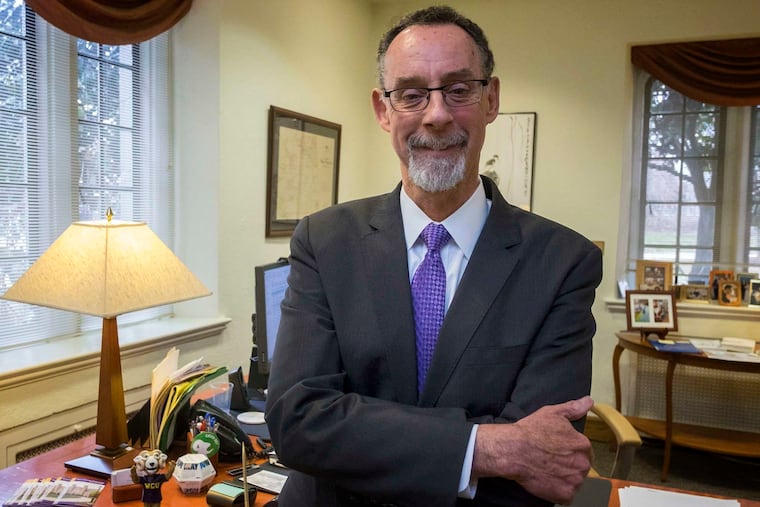Former West Chester University president appointed chancellor of Pennsylvania’s state system of schools.
Christopher M. Fiorentino has been appointed as the permanent chancellor of the Pennsylvania State System of Higher Education (PASSHE), a significant leadership role overseeing ten universities that educate approximately 82,000 students statewide. Fiorentino, who previously served as president of West Chester University and has an extensive background in economics, has been acting as the interim chancellor since the departure of Daniel Greenstein in October. His formal transition into the permanent role will take place on Friday, although his salary as permanent chancellor has yet to be announced.
Fiorentino’s appointment comes at a time when PASSHE faces several pressing challenges, including a decline in enrollment, competitive pressures within a saturated higher education market, and a sluggish economy. Currently, Pennsylvania’s high school graduation rates have seen a decline, from 130,000 graduates in 2011 to just over 125,000 in 2023. This trend points to a shrinking pool of traditional students, a critical demographic for PASSHE, where over 90 percent of enrollees are Pennsylvania residents.
Cynthia Shapira, chair of the system’s board of governors, expressed confidence in Fiorentino’s ability to navigate these challenges. She cited his recent engagement with essential issues as a sign that he is energized and ready to lead the system in a new direction. The board’s unanimous vote to appoint Fiorentino followed a comprehensive national search involving a diverse array of candidates, many of whom had prior experience in high-level educational leadership roles.
Fiorentino, who retired from West Chester University in June after a career spanning more than four decades, initially hesitated to pursue the permanent chancellor position. However, following his deepening engagement with the system’s operational challenges, he became enthusiastic about the potential impact he could make.
One of Fiorentino’s immediate concerns will be addressing the significant erosion of the student pipeline, as fewer high school graduates proceed to higher education. According to system data, under 58 percent of teens in Pennsylvania enrolled in collegiate programs during the current academic year, a decrease from a peak of 71 percent just over a decade ago. This decline raises questions regarding the future viability of certain academic programs, particularly those that have seen minimal graduation rates.
In response to this complex landscape, Fiorentino emphasized the importance of maintaining affordability. He noted that PASSHE has preserved relatively low tuition rates for in-state residents, currently at ,716 annually, while also doubling the financial aid available to students. This financial support, amounting to 0 million, aims to make education accessible despite broader economic challenges.
As Fiorentino steps into his new role, he acknowledges the necessity of making tough decisions regarding academic offerings while ensuring that the system evolves to meet workforce demands and student needs. Discussions about program consolidation and possible moratoriums on low-enrollment majors are already underway, reflecting a proactive approach to adapt to the changing dynamics of higher education.
Moving forward, the chancellor’s leadership will be pivotal in not only addressing current challenges but also in revitalizing the vision for PASSHE, ensuring its relevance and success in the years to come.







